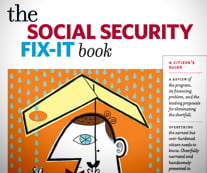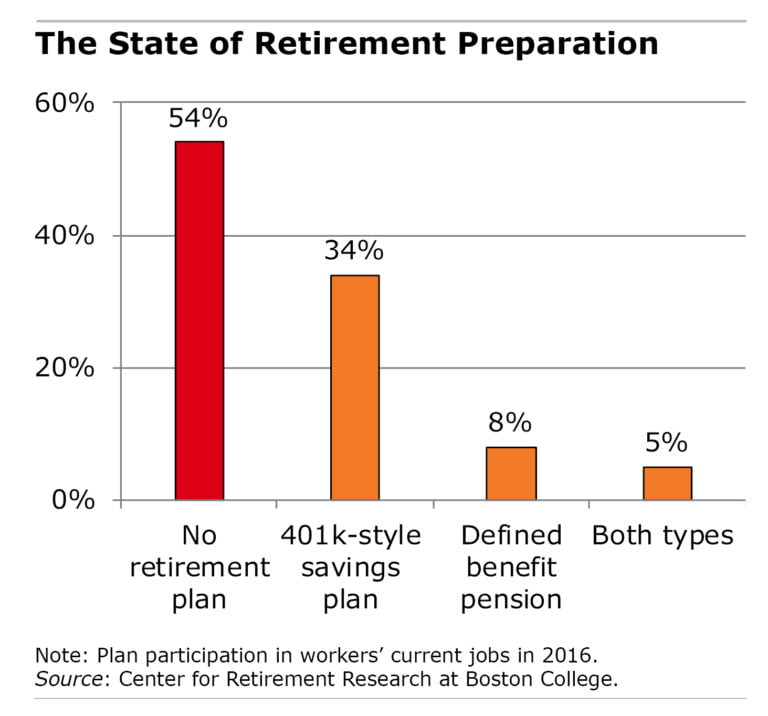Myths, misconceptions, and questions about Social Security abound. It is essential to understand how the program works. People often have strong opinions about Social Security; I used to ask these persons to take an easy 10 item true-false quiz and refuse to pay attention to their opinions if they flunked (scoring less than 7 items correct).
1. Social Security is NOT going bankrupt! Although there are concerns about the future, since it is a pay as you go system there will always be workers paying into the system so that benefits can be paid to beneficiaries. With a few simple adjustments to the system for future taxpayers and recipients, Social Security can be sure for the next 50-75 years... but that would take cooperation on the part of the two parties in Congress. Not likely under our current president.
Check out
The Social Security Fix-It Book produced by the Center for Retirement Research at Boston College:
https://crr.bc.edu/special-projects/books/the-social-security-fix-it-book/

2. Congress probably won't act to ensure the long-term health of Social Security anytime soon. The deep political divides in Congress mean we will have to wait for a more centrist administration.
3. Ideas to reform funding have been on the table for a long time. See
The Fix-It Book.
4. Lawmakers do not raid the SS trust fund. The trust fund is invested directly into U.S. Treasury securities.
5. The SS system could be run better with more funding for employees. With the huge babyboom generation tapping benefits, we need more employees to serve them.
6. SS benefits may be subject to federal and state income tax, depending on your annual income. For the IRS, Single filers with incomes above $34,000 and joint filers with incomes above $44,000, up to 85% of SS benefits may be taxable. Only 13 states tax SS income. Utah is one of the 13.
7. SS was never intended to provide sufficient support for a comfortable retirement. That's why you need to invest in an IRA and employer sponsored retirement plan throughout your working years.
8. The purchasing power of SS benefits is shrinking. Despite annual cost of living adjustments, retirees face high medical costs that are rising faster than other goods and services.
9. You can earn income and receive SS benefits. But the agency will reduce your benefits if you are younger than your full retirement age and your earnings exceed a certain $ amount that changes yearly ($17,640 in 2019). The money that is withheld will be paid in higher benefits once you reach your fall retirement age.
10. SS pays benefits electronically and encourages every worker to set up a My Social Security Account
https://www.ssa.gov/myaccount/
11. In addition to retirement benefits, Social Security pays for disability, survivor, and dependent benefits.
12. Most workers get back more than they pay into the system.
Source:
AARP Bulletin.
Public Service employees such as teachers and firefighters who earn a government pension and pay no SS taxes on those earnings, will see a reduction in their SS benefits. due to the Windfall Elimination Provision (WEP). The WEP is meant to preserve a basic principle of SS: that low earners receive a higher percentage of their income in benefits compared to high earners. For workers who spent much of their career in public service earning pension but NOT paying SS taxes and then worked in a job where they did pay SS taxes, they would appear to be low earners, thus reaping a relatively large benefit. This the WEP is designed to acknowledge that public pension.
Source: Your Money: Financially Speaking by Jane Bryant Quinn, AARP Bulletin.
 Funds for the long run (over 5 years) should be invested for growth in the stock market.
Funds for the long run (over 5 years) should be invested for growth in the stock market. "The 2020 presidential candidates have proposed various changes to Social
Security’s retirement program. The Center (for Retirement Research at Boston College) has collected a list
comparing these changes. The list will be updated on a regular basis
throughout the campaign season."
"The 2020 presidential candidates have proposed various changes to Social
Security’s retirement program. The Center (for Retirement Research at Boston College) has collected a list
comparing these changes. The list will be updated on a regular basis
throughout the campaign season." https://squaredawayblog.bc.edu/squared-away/video-retirement-prep-101/
https://squaredawayblog.bc.edu/squared-away/video-retirement-prep-101/ The NYT article provides plenty of additional information and stories of eligible borrowers who spent years trying to get their loan forgiven.
The NYT article provides plenty of additional information and stories of eligible borrowers who spent years trying to get their loan forgiven. "Many divorcing spouses find themselves strapped for money to pay for
mounting legal bills and the higher costs of supporting two households,
rather than one. With bank accounts and brokerage accounts drained to
zero, some look to tap their employer 401(k)s or IRAs for quick cash to
cover these costs."
"Many divorcing spouses find themselves strapped for money to pay for
mounting legal bills and the higher costs of supporting two households,
rather than one. With bank accounts and brokerage accounts drained to
zero, some look to tap their employer 401(k)s or IRAs for quick cash to
cover these costs." For slightly more complicated returns—for example, if you need to itemize because you own a home—TurboTax Deluxe is the best software for the job.
For slightly more complicated returns—for example, if you need to itemize because you own a home—TurboTax Deluxe is the best software for the job. 